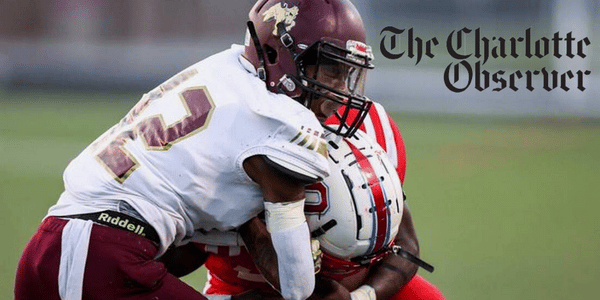Finding Your College Fit – Questions to Ask When Building a Target List of Schools
Updated on Feb 6, 2025

Starting the college search process can be intimidating and overwhelming. Student-athletes should first make a starter list of colleges. To kick start the process, ask yourself specific questions to help identify which schools and athletic programs will be the best fit for you as a “student” and as a “student-athlete”.
When creating a target list of colleges, start with a wide range of academic and athletic fit schools. Your outreach during the recruiting process will be a trial and error experience, and you need to have an open mind initially (aim for 30 – 40 schools) to understand what schools are your athletic/academic reach, best fit, and safety schools. Being realistic about your academic and athletic fit at each school is key to a positive recruiting experience and college admissions outcomes.
To find the right college fit for student-athletes, think about what you need in the five following categories: academic, athletic, campus and culture, financial cost, and career goals. It may be wise to have two master lists: one list of colleges where athletic recruiting is a possibility and one list where students will pursue club and intramural athletic opportunities.
Keep the list of questions below handy when speaking with prospective college coaches. These questions can help you compare colleges and find the best college fit for your goals.
Academic Fit
Assessing your chances of admission can be a good way to identify a strong academic match (and, of course, your list of reach, best fit, and safety schools!). Your high school GPA, standardized test scores, and the rigor of your high school classes are important elements of your college application. However, it is also important to examine the school’s faculty teaching styles, academic priorities, and learning environment.
- Will you meet the division or school’s initial academic requirements?
- Does the school offer your major or preferred course of study?
- Colleges may not offer your career-centered course of study, however, their majors can provide more general foundational skills that provide students with analytical and communications skills that are transferrable and key to a successful career.
- Many careers require a graduate degree – consider programs that combine undergraduate and graduate programs on an accelerated timeline and whether this type of intense learning environment is possible with an athletic commitment.
- Consider your learning style: will you succeed with lecture style or small group discussions?
- Do you have a preference to be taught by full-time professors or graduate students?
- Review the average GPA for the recent incoming class and see how you measure up. Assessing your chances of admission can be a good way to identify a strong academic match (and, of course, your college list of reach, best fit, and safety schools).
- What is the current team GPA?
- What academic supports are available to student-athletes?
- Will your major require an internship?
- What are common majors that team members choose?
- What is the graduation rate for the team?
- What careers do students in the program pursue after graduation?
Athletic Fit
While many high school student-athletes dream of one day competing at a top NCAA Division I school, only 2% of the 8 million high school student-athletes will get the chance to compete at the DI level.
It’s important to think beyond your collegiate playing years to take advantage of the academic opportunities while in school. When asking yourself athletic-focused questions, reach out to your club and high school coaches to help determine whether a college program is a good athletic fit.
Actively seek out one-on-one conversations with college coaches (for timing, refer to the NCAA recruiting calendar).
- What division and conference is your best match?
- Has the coaching staff indicated that you are on their short list of recruits?
- If yes, use this as a fit measure and look at other colleges on that team’s schedule
- How many players on the roster have the same position?
- How long has the coaching staff worked together?
- Are many freshmen on the team red-shirted?
- What does the training program consist of at the school?
- What are the off-season expectations for a player?
- What is the daily schedule for a student-athlete at each school?
- How much playing time will you see as a freshman?
- Does the team take walk-ons and/or hold tryouts?
- What does the current team roster look like? Height and weight of players by position/role, high school background of players, is it mostly international or in-state, do they have a lot of transfers, is the roster racially and/or geographically diverse?
If you’re not receiving a response or having any interaction after following the outreach steps, you might want to reconsider your list of target schools.
For thousands of student-athletes, NCAA DIII is the best fit choice for their academic and athletic needs and aspirations. With shorter practice sessions and playing seasons, these student-athletes can focus more on their academics and college life. Others may choose to play at the junior college level in order to gain more training before transferring to compete for an NCAA or NAIA program. Many junior colleges offer competitive sports programs and can be a stepping stone to a four-year college or university.
Campus and Culture Fit
Even though athletics will play a major role in the life of a college student-athlete, every student should make sure they are going to be happy on campus even if/when they are not with the team.
Things to Consider:
- Size of the Student Body and Teacher-to-Student Ratio: Will you thrive in large lecture halls or are you going to be more successful in smaller class sizes where you can have in-depth conversations with your professor and classmates?
- Geographic Location: How far away from home do you want to be? Is weather a factor? Will you fly home for breaks or drive? How often will you be visiting home? Can your family watch your competitions? Campus type: What is the surrounding community like? Do you want to be in a city, suburb or in the country? Are there internship opportunities nearby during the school year? What are on campus and off campus housing like? Talk to current students and take campus tours to learn how students spend their time when they are outside of class and athletics. Take the quality of life into account, and try to check out (or read about) the dorms, food, and recreational facilities on campus. The best way to experience campus is to get there in person. Trust your gut instincts.
Financial Fit
Have the necessary financial cost conversation as a family. Certain schools may seem out of reach that actually may be affordable with financial aid (athletic, merit, need, and other grants). Don’t make assumptions about what you can afford until you’ve done the research and asked questions at each school’s Financial Aid Office.
- What is the total amount that the family can afford? Fill out the online tuition calculators for each college to understand what your expected family contribution (EFC) will be. Ensure you complete your FAFSA as well. You may also qualify for merit scholarships. Consider applying for outside scholarships, and review each financial aid package offered either during the recruiting process and/or after admissions and full financial aid offers have been released.
- Are you receiving an athletic scholarship? What will and will not be covered? How many years are guaranteed? If you are in recruiting talks with a college coach and they have been very clear of their intentions to recruit you, start the financial aid discussion to ensure you aren’t wasting valuable time and effort.
- Are you eligible for merit-based financial aid? Are there any restrictions? Sometimes a student-athlete cannot accept a certain type of scholarship because of NCAA limitations. If you will be receiving other scholarships, let the coach and financial aid office know so they can determine if you may accept additional dollars.
- Are you willing to take out college loans?
- Are there employment opportunities while you are a student-athlete? Find out if you can be employed in season, out of season, or during vacation periods.
- Who is financially responsible if you’re injured while competing?
- Under what circumstances could your scholarship be reduced or canceled? The college or university may have a policy governing the renewal of athletics aid. Be sure to ask if such a policy exists.
- Are there academic criteria tied to maintaining a scholarship? Some colleges or universities add academic requirements to scholarships (e.g., minimum GPA).
- What scholarship money is available after eligibility is exhausted to help complete your degree?
Career Development Fit
In addition to confirming that the school offers the majors and classes that interest you, contact the Career Development Center at each school. It’s equally important to find out how the school supports students in preparing for the professional world.
Honest Insight: Many careers and graduate schools do not require a specific major. Instead, they consider how you did in college, entrance test scores, and professor recommendations.
If you’re not sure yet which direction you’ll go in, see what career coaching and personal evaluations are available for students. Many institutions extend career support to alumni which can be invaluable in the early post-collegiate years. As more students factor post-graduate plans into their college decision process, college admission, and recruitment officers are emphasizing career support and placement when pitching their schools to prospective applicants.
- Find out how the school supports students in preparing for the professional world. Do they offer resume writing workshops? Practice interviews? Networking events with alumni?
If you foresee yourself in a particular field or specific workplace, ask about past students’ track records of finding internships and entry-level jobs in those areas.
If you’re not sure yet which direction you’ll go in, see if career coaching and personal evaluations are available for students.
How Does Honest Game Help with College Fit?
Whether the goal is to earn an athletic scholarship to help with the financial strain on your family or utilize your athletic talents to help gain entrance into your dream school, narrowing down the list of schools to find the best college fit will help you make the best-informed choice as you navigate the process. Ultimately, these steps will help to make sure you are 100% confident in your school choice when committing to a school! The more research you’ve done, the more prepared you’ll be to decide.
Have more questions about the college commitment process? Honest Game counselors are available to provide one-on-one assistance to support student-athletes in navigating post-secondary opportunities athletically and academically. Schedule a time to meet virtually with our experts.

Having served on the NCAA Eligibility Center High School Advisory Board and as the College Bound Student-Athlete Advisor at Evanston Township High School (Evanston, IL), Joyce has advised more than 2,000 high school student-athletes and families on academic eligibility and recruiting.



